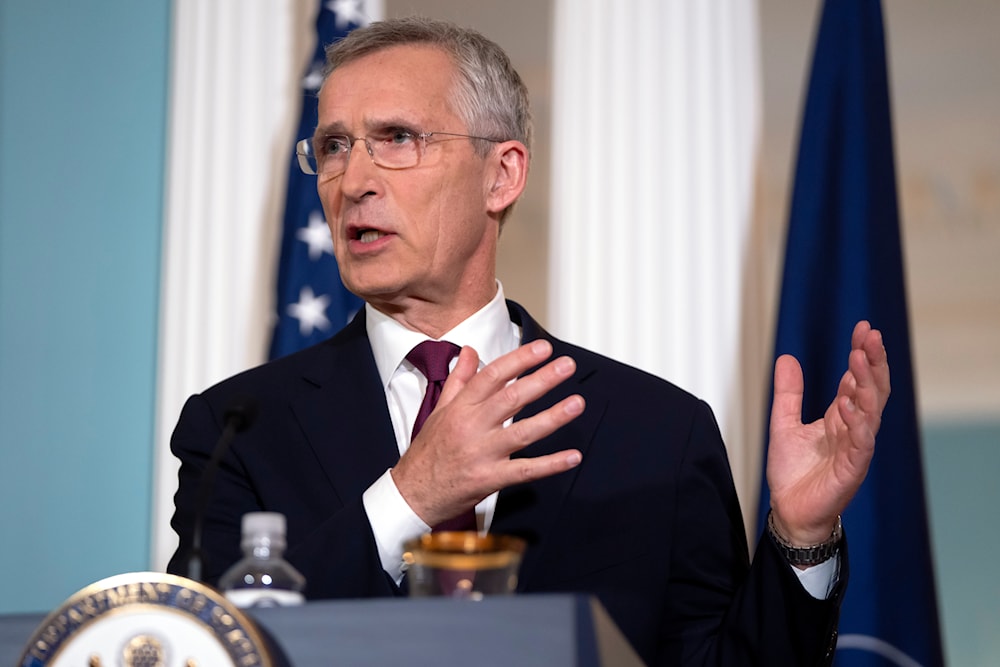NATO’s Stoltenberg accuses China of fueling largest conflict in Europe
The Atlantic alliance's secretary general says there is a strong need to reinforce cooperation between Japan, South Korea, Australia, and New Zealand to intensify pressure on China.
-

NATO Secretary General Jens Stoltenberg speaks during a joint news conference with Secretary of State Antony Blinken at the State Department in Washington, on June 18, 2024. (AP)
NATO's Secretary General Jens Stoltenberg accused China of inciting the largest military conflict in Europe since World War II, during an interview with Japanese newspaper Yomiuri.
He claimed that Russia is producing missiles and drones with the support of advanced technology imported from China, which allegedly makes Beijing accountable for instigating the "largest conflict on European soil" since World War II.
The secretary general said there is a strong need to reinforce cooperation between Japan, South Korea, Australia, and New Zealand to intensify pressure on China and "stabilize the region", adding that, in the event of developments around Taiwan, NATO would keep its status of the North American and European alliance.
He also said NATO would not be moving ahead with its earlier-announced plan to open an office in Tokyo to avoid provoking Beijing. On that note, Stoltenberg stressed that NATO does not see China as a rival but still views its behaviors as challenging the alliance's values, interests, and security.
Stoltenberg: China prolonging Ukraine war
Stoltenberg's statement comes amid ongoing US accusations that China is aligning with Russia and supporting its military operation in Ukraine. Both China and Russia have rejected these claims, asserting that their relationship is primarily economic.
In a related context, in May, Stoltenberg accused Beijing of exacerbating the ongoing war in Ukraine by supporting Russia, claiming that by voicing support for Moscow, China was prolonging the war. "China says it wants to maintain good relations with the West. At the same time, however, Beijing is fueling the war in Europe. You can't have it both ways," Stoltenberg stated in an interview with the German newspaper Welt am Sonntag.
Highlighting the importance of China's support for Russia, Stoltenberg said there was an increase in the sale of machine parts, microelectronics, and other technologies essential for Russia's military industry.
West's war against Russia, China
Last week, Washington and Western allies launched a new phase of financial warfare targeting Russia and China, marking a potent yet potentially perilous escalation, according to an analysis by columnist Michael Hirsh for Foreign Policy.
Hirsh argues that such measures, including action taken at the recent G7 summit to redirect billions in frozen Russian assets to Ukraine, alongside fresh sanctions on Chinese banks, could erode the dominance of the US-led international financial system.
This development is seen as potentially satisfying to Russian President Vladimir Putin and Chinese President Xi Jinping, who seek to establish an alternative financial order centered on the renminbi, Hirsh said.

 3 Min Read
3 Min Read








